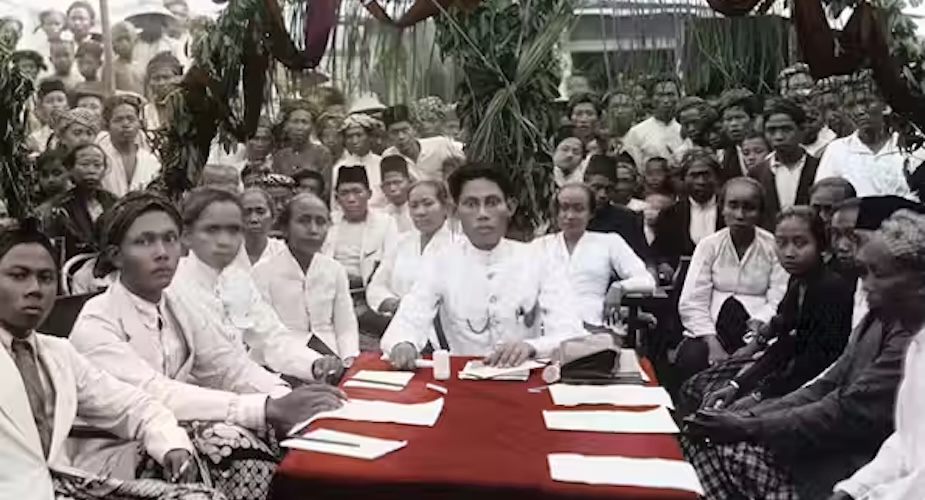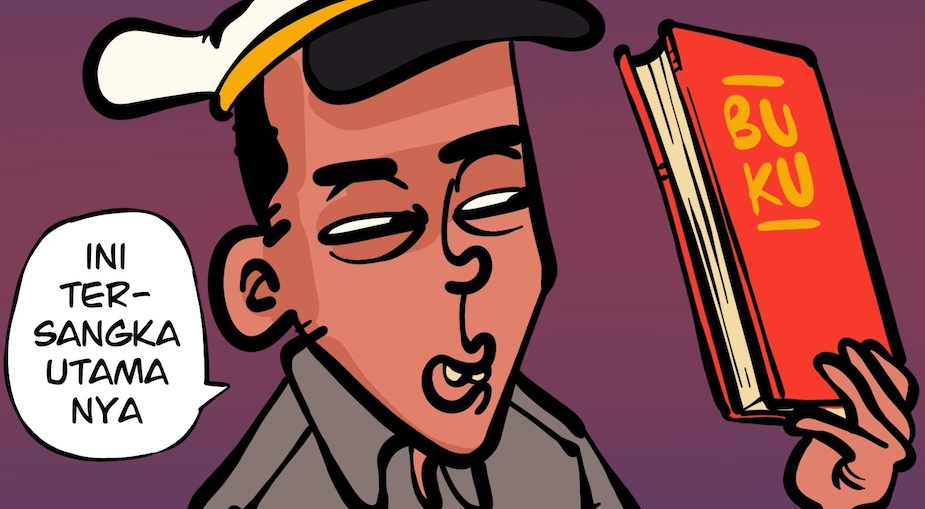Australian university students lend a helping hand
Lea Jellinek
Sukunan, a kampung (village) on the outskirts of Yogyakarta, did not have a government rubbish collection service. Every household disposed of its own rubbish. Most buried, burned or threw it in the irrigation canals. The farmers complained because plastic clogged up their paddy fields, reducing rice yields. During the past ten years the village had become densely settled and there was no place for rubbish.
Iswanto, a Sukunan resident, environmental health scientist and educator, visited our home at ACICIS and observed our household waste management. In his small home, with no land for a garden, he experimented with separating paper, plastic and kitchen refuse and making compost. Soon his neighbours started to follow his example and the process spread throughout his neighbourhood. As far as we know, this separation of rubbish in kampung kitchens — and an entire community involved in recycling — is the first program of its type in Yogya or anywhere else in Indonesia. Staff and students from ACICIS (Australian Consortium for In-Country Indonesian Studies) have lent a helping hand. By being involved, our Australian students have experienced a good community development program and learnt valuable lessons working alongside villagers.
The project
A donor from Melbourne made it possible for Sukunan to buy 50 used 44 gallon drums which were cleaned, welded with lids and feet and painted by Sukunan’s teenagers. A group of Yogya street artists (Apotik Komik) gave a workshop on how to mix and apply paint. Lined up, the 50 drums looked like an art show. Mothers pointed with pride to the drums their children had painted. Prizes were given for the most artistic drums. Teenagers organised a relay race to help the youngest children learn how to separate rubbish. Those participating also received prizes and certificates.
The community decided where the drums would be placed so that they were convenient to each household. Three drums (Glass and Metal, Paper, and Plastic) served 12 houses. All of the work was done voluntarily and the community was proud of its achievements. Two second-hand sewing machines were bought so that the women could sew handbags out of recycled cappuccino sachets.
Gathering momentum
In less than one year, the program has reached 800 people. Nine formerly unemployed young men are working in cottage industries related to the making of drums and recycling of rubbish. A recycler comes regularly to collect, weigh and buy the separated rubbish.
Over the past two months, the community has earned Rp 800,000 (A$125) from the sale of rubbish bins, clay composting containers and the recycled rubbish — especially black plastic bags, which are in great demand by recycling industries in Solo, Surabaya and Jakarta. The compost made by the community is selling well and the community cannot keep up with demand. Handbags are also selling well.
Many visitors both from other communities and local government are coming to the community to learn how to recycle and compost. Women from Sukunan are going out as extension workers to neighbouring villages to educate others about the process of separatiýg rubbish. Sukunan has been put forward by local government to compete for a prize in community self-help and environmental/health management. The villagers have learnt to view rubbish as a resource which can be managed rather than carelessly discarded, and at the same time recycling is helping to reduce ground, water and air pollution.
This rubbish recycling and environmental health program in Yogya has everything going for it: bottom-up planning and design with committed, dynamic and capable leadership, good management, cautious use of funds, self-monitoring and documentation of all funds spent. Lots of local people have been prepared to volunteer their efforts. Now other villages and local government want to learn from Sukunan’s example. The project has donors. What we don’t have is an Australian tax-deductible channel by which to get money to the project. Can anybody help?
Lea Jellinek (ojell@lexicon.net) along with her partner Ed Kiefer, were Resident Directors of the ACICIS program from June 2003 to June 2004.











